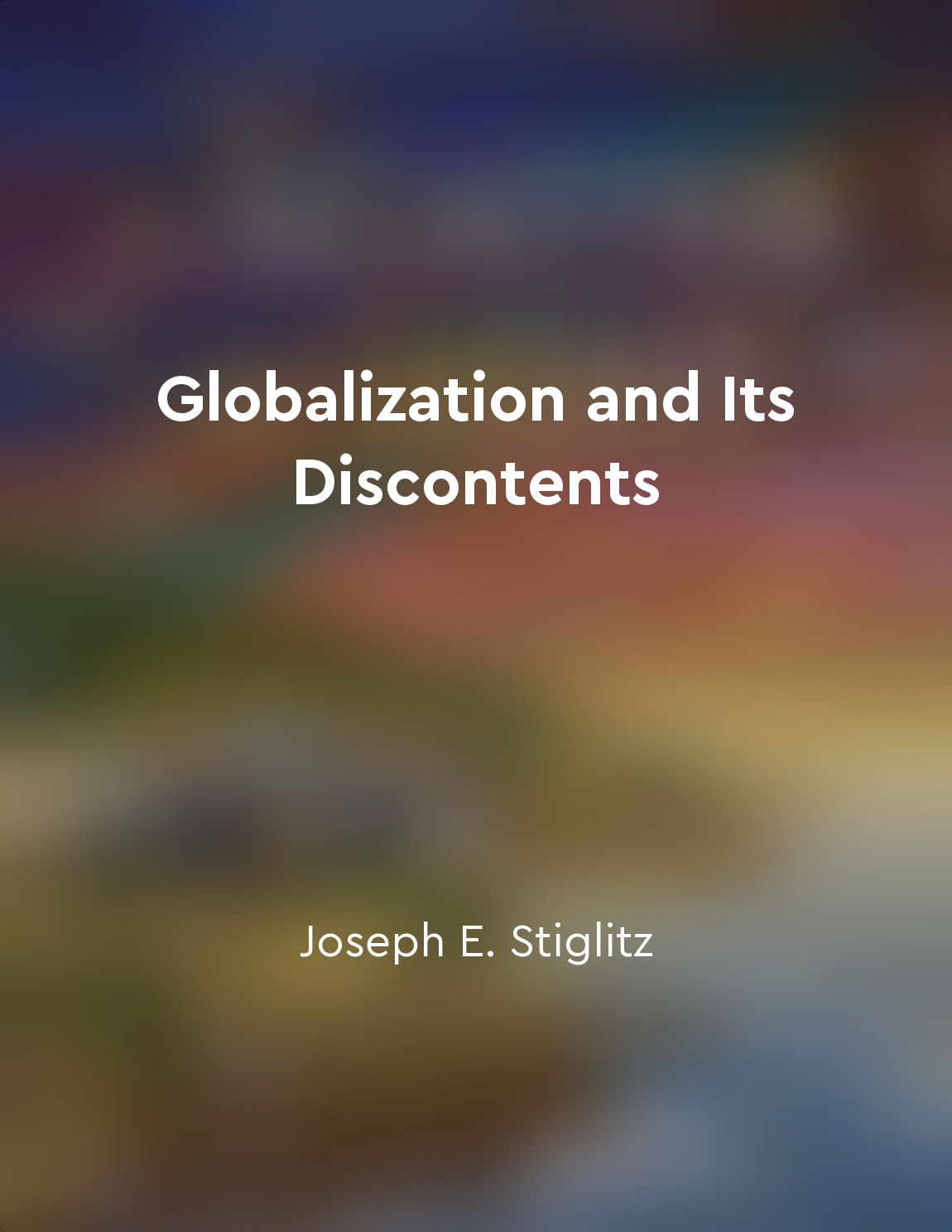Industrial policy can promote economic diversification from "summary" of The Industrial Policy Revolution II by J. Esteban,J. Stiglitz,Justin Lin Yifu
The promotion of economic diversification is a central objective of industrial policy. By actively shaping the structure of the economy, industrial policy can help countries move away from over-reliance on a narrow range of industries towards a more balanced and resilient economic base. This is particularly important for developing countries, which often face the challenge of being too dependent on a few primary commodities or industries. Through targeted interventions such as subsidies, tax incentives, and investment in infrastructure and human capital, industrial policy can encourage the development of new industries and the expansion of existing ones. By providing support to strategic sectors that have the potential to drive economic growth and create jobs, industrial policy can help countries diversify their economic base and reduce their vulnerability to external shocks. At the same time, industrial policy can also help address market failures that may prevent the emergence of new industries or hinder the growth of existing ones. By correcting for information asymmetries, coordinating investments, and fostering collaboration between the public and private sectors, industrial policy can help overcome barriers to entry and facilitate the development of industries with high growth potential. Furthermore, industrial policy can play a key role in promoting technological innovation and upgrading. By supporting research and development, providing incentives for firms to adopt new technologies, and facilitating knowledge spillovers between firms, industrial policy can help countries move up the value chain and compete more effectively in global markets. This can not only drive economic diversification but also enhance the long-term competitiveness of the economy.- Industrial policy has the potential to be a powerful tool for promoting economic diversification, fostering innovation, and building a more resilient and dynamic economy. By actively shaping the industrial structure of the economy and addressing market failures, industrial policy can help countries overcome the challenges of economic development and unlock new opportunities for growth and prosperity.
Similar Posts
Behavioral economics explores how psychological factors influence economic decisions
Behavioral economics delves into the intriguing ways in which our brains can sometimes lead us astray when making economic deci...
Extractive institutions discourage investment and entrepreneurship
Extractive institutions are those that are designed to extract resources from the economy for the benefit of a small elite, rat...
The market economy empowers individuals
In a market economy, individuals are free to make their own choices about how to utilize their resources. Through the process o...

Exchange rates affect trade balances
Exchange rates play a critical role in determining the trade balances between countries. When a country's currency depreciates ...
Markets facilitate the exchange of goods and services
The mechanism of markets can be understood as a system that allows individuals to exchange goods and services with one another....
Investment in physical and human capital promotes growth
Investment in physical and human capital is essential for promoting economic growth. Physical capital refers to the tools, mach...
Trade remedies serve as safeguards against unfair competition
Trade remedies are crucial tools that countries can use to protect their domestic industries from unfair competition. In today'...

Globalization has led to the erosion of worker rights in many countries
Globalization has resulted in a race to the bottom in terms of workers' rights in many countries. As companies seek to cut cost...
Stay focused on your longterm financial goals
It is easy to get distracted by short-term market fluctuations and lose sight of your long-term financial goals. In the world o...
The intangible economy requires a shift in mindset and approach
The intangible economy presents a new set of challenges and opportunities for businesses and policymakers alike. In this new ec...


